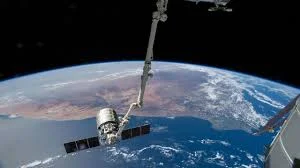 Africa marked a significant milestone in space technology as Rwanda successfully launched its first satellite, “RwaSat-1,” on November 15, 2022. This launch signifies a growing focus across the continent on technological advancement and improved infrastructure, with Rwanda becoming one of the few African nations to deploy a satellite into orbit.
Africa marked a significant milestone in space technology as Rwanda successfully launched its first satellite, “RwaSat-1,” on November 15, 2022. This launch signifies a growing focus across the continent on technological advancement and improved infrastructure, with Rwanda becoming one of the few African nations to deploy a satellite into orbit.
Rwanda’s First Satellite and Its Purpose
The satellite, named RwaSat-1, was developed to support Rwanda’s national telecommunications and data collection initiatives. RwaSat-1 is designed to enhance internet connectivity across remote regions and gather environmental data, addressing some of the country’s primary challenges related to connectivity and climate. The Rwandan Ministry of ICT and Innovation stated that the satellite’s data collection capabilities will also assist in fields such as agriculture, urban planning, and disaster response.
Paula Ingabire, Rwanda’s Minister of ICT and Innovation, noted, “The launch of RwaSat-1 represents an important step for Rwanda’s digital transformation. With improved connectivity and data resources, we are building an inclusive digital future for all Rwandans.”
Collaborative Efforts and International Partnerships
The RwaSat-1 satellite was developed in collaboration with the Japan Aerospace Exploration Agency (JAXA) as part of Rwanda’s long-term strategy to foster space technology and data-driven solutions for development. The satellite was launched into orbit aboard a Japanese rocket from the Tanegashima Space Center, with coordination between Rwandan engineers and international experts.
This successful launch was achieved through the Joint Global Multi-Nation Birds Satellite Program, which aims to empower developing nations in space technology. The program has previously supported satellite launches for other African nations, including Ghana, Nigeria, and Kenya, and is part of a broader initiative to support scientific and technological progress in Africa.
Impacts and Goals for Rwanda’s Space Technology
RwaSat-1’s launch positions Rwanda as an emerging participant in Africa’s space industry and demonstrates the continent’s growing capabilities in space exploration and satellite technology. The Rwandan government plans to use insights gained from the satellite to address socio-economic challenges and enhance connectivity across underserved regions. The data will be pivotal for monitoring climate patterns, improving agriculture, and supporting educational programs in science and technology.
This initiative aligns with Rwanda’s Vision 2050 plan, which emphasizes digital growth, infrastructure development, and sustainable environmental practices. The government has expressed intentions to continue investing in space-related projects as a path to economic resilience and technological innovation.
Conclusion
The successful launch of Rwanda’s first satellite represents a significant advancement in Africa’s space journey. As Rwanda and other African nations expand their space technology capabilities, Africa is increasingly establishing its presence on the global stage in science, technology, and innovation.




















